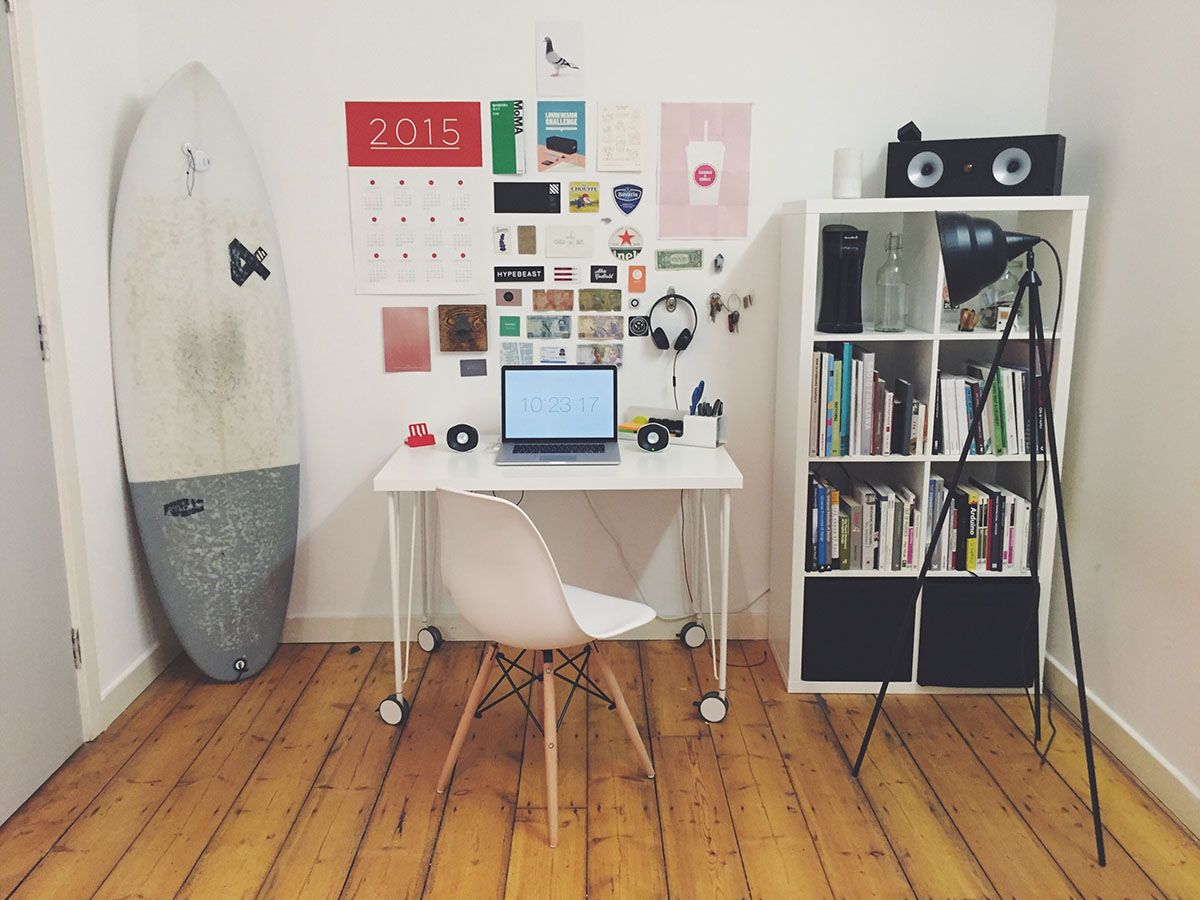How Productivity Harms Your Creativity and What to Do About It
One of the most important disadvantages of learning, working and living on the advice of productivity gurus is that too much structure can stifle creativity. In this post I examine the evidence from history, science and my own personal experience on the subject and discuss what can be done to combat

Confessions of a Recovering Productivity Addict
I have a confession to make: I’m a recovering member of the cult of productivity.
What does that mean exactly? Well, it means that I’ve spent hours refining my note taking system, I often struggle to work if my desk isn’t in pristine condition and at some point in the last few years I’ve tried to build a system for almost every aspect of my life.
I’ve even interrupted important tasks to listen to hour-long podcasts because the title featured note taking and workflow and I just couldn’t help myself.
This behaviour is both bizarre and amusing if we stand back and examine it objectively but chances are that while you may not have taken things to the same extremes I have, you’ve probably worshipped at the altar of productivity in the recent past as well.
This is because in our modern Western society, many of us have now accepted the belief that productivity and efficiency are the foundations for success and happiness. And most of the time we do this unconsciously.
Whether it’s Stephen Covey explaining the 7 Habits of Highly Effective People, David Allen advising us on Getting Things Done, or the never-ending stream of articles on LifeHacker, organising our life is now considered by many to be a fundamental need for living a good life.
Now, I’m not saying that systems aren’t useful and that these books are totally devoid of value – they do contain some strategies that have allowed me and many others to organise our lives better and to get more shit done.
But when we unconsciously accept the main message behind these strategies – that there can be no internal harmony in our lives without external order – we forget the disadvantages that being disciples of the productivity gurus can bring.
If the good life is one of seamless efficiency and one where we should try to control all aspects of our environment and ourselves, then scheduling everything in a calendar and building flow charts for the processes in our lives starts to seem less and less bizarre.
After all, these things will make us more productive and if we’re more productive we’ll be happier and more fulfilled. Right?
Excessive Productivity Kills Creativity
When we take a step back from our colour coded index cards and neatly stacked bookcases to examine the evidence, it turns out that there are several disadvantages with learning, working and living in accordance with the maxims of productivity gurus.
The most important of all of these is that excessive structure stifles creativity.
While some focused work is needed to build up experience in specific domains, this needs to be balanced with periods of unstructured free flow, to allow our brains to switch between the focused and diffuse modes of thinking.
The convergent, logical flow chart approach to learning and working recommended by the productivity gurus often leaves no room for the divergent thinking and process of fluid and spontaneous free association that is so central to the creative process.
The truth is that existing beliefs and perceptions often have to be deliberately dismantled or smashed beyond recognition so that new possibilities can arise from the chaos created.
Picasso himself said that "every act of creation is first and foremost an act of destruction" and countless other artists and scientists have echoed this view in one form or another.
I’ve found evidence of this in my own personal experience - while my natural instinct has been to swing between longer periods of extreme structure and shorter ones of complete chaos, a lot of my best creative work has definitely come in periods of greater disorder and less structure.
The evidence of this need for disorder in the creative process can also be found in the experience of countless creative geniuses and scientific research.
In Creativity and Madness Albert Rothenburg studied the creative processes of 22 Nobel Prize winning scientists and reviewed the biographies of geniuses like Albert Einstein, Max Planck, Niels Bohr and Charles Darwin.
He found that a core aspect of the creative processes of these individuals was the act of deconstructing existing categories and combining seemingly contradictory ideas that had not yet been merged. He termed this the Janusian process after the two faced Roman god Janus who was able to face two directions at the same time.
Scientific research is equally supportive of the idea that a large part of the creative process is unconscious and free flowing. By using neuroimaging technology to study the creative process at the physical level of the brain, Nancy Andreasen has found that we tend to be at our most creative when our brains are in their resting state or the diffuse mode, as this is when different regions of the association cortex spring to life and we can start joining the dots between different ideas.
Does Mess Bring Creative Success?
Is it coincidence that creative people often surround themselves with chaos in their studios and workrooms? Do their environments mirror the processes that contribute to their originality? Or is it that they just spend more time daydreaming than those of us worrying about to rearrange our filing cabinets.
There is actually plenty of evidence to suggest that excessive tidiness is unlikely to boost our productivity and may even reduce it. Psychology professor Jay Brand argues that the capacity restrictions of our working memory mean that we’re only able to hold a limited amount of chunks in our working memory at once – seven items plus or minus two to be exact.
This actually means that spreading out more items across your physical workspace creates an extension of your thinking space and allows you to use your environment to think, expanding your potential for making creative connections.
A German research study also found that our innate instinct to screen out irrelevant visual and auditory information in our environment can actually mean that working in a messy environment allows us to focus our attention more on the task at hand.
So if you’re someone who always tidies your workspace before starting work, try not doing that for a few days, or if you’re feeling particularly adventurous, even create some mess intentionally. (I promise you’ll be OK - I’ve tried it myself)
The Takeaway
In Western society, many of us have unconsciously accepted the belief that a good life is one that’s run with the precision of a Swiss watch. While having some systems in place is important to reduce stress, the truth is that many of us stray towards the other extreme by trying to control everything about our environments and ourselves.
Not only does this obsession with control reduce the quality of our learning and daily experience, it can also harm the creative process by getting us stuck in fixed routines that prevent us from pursuing novel experiences.
Plus, excessive rationalisation can make life rather dull and predictable - so we may all just be better off with a little less order and a little more chaos.

